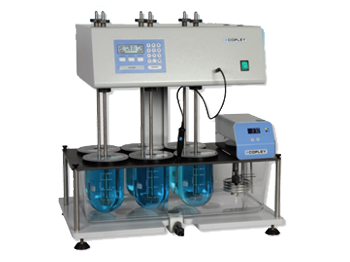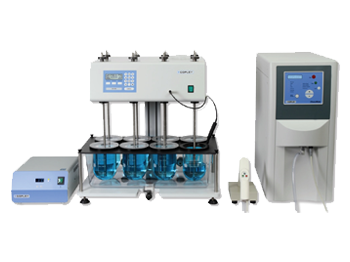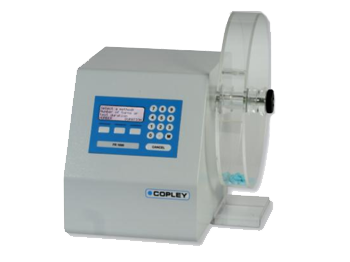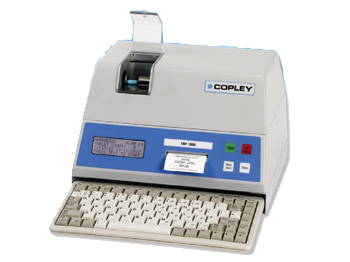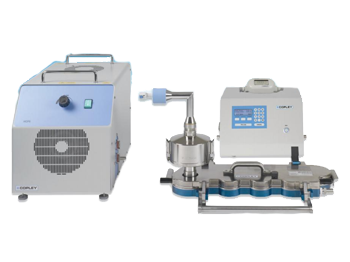Based on an original design by Roche, the friability tester has now become an accepted standard throughout the pharmaceutical industry for determining the resistance of uncoated tablets to the abrasion and shock experienced in manufacturing, packing and shipping operations.
If you need discussion about this product, please click “Find Solution”. Or click the “Order Now” to buy now.
Friability Testers (Uncoated Tablets)
The basic Friability Tester Model FR 1000/2000 comprises of a single or dual drums rotated at a fixed speed of 25 rpm. The standard friability drum has an inside diameter of 287 mm and a depth of 38 mm and is fitted with a curved baffle which subjects the tablets to be tested to a drop of 156 mm. The Friability Tester Model FRV 1000/2000 also features either one or two drums, but allows variable speed between 20 and 60 rpm to be programmed. Number of turns or test duration can also be programmed into the tester.
The sample (normally 10 tablets) to be tested is first weighed and then placed into the drum. The drum is then rotated 100 times, any loose dust from the sample removed and the sample re-weighed. The friability drum features apertures behind the baffle, such that the tablets can be added and removed from the drum automatically at the beginning and end of the test.
The Friability of the sample is given in terms of % weight loss (loss in weight expressed as a percentage of the original sample weight). A maximum weight loss of not more than 1% is considered acceptable for most tablets.
Abrasion drums for carrying out tests into the attrition of tablets caused by the product rubbing together during transit are also available on request.
Friability Testers (Granules and Spheroids)
In many cases, such as with hard coated and uncoated tablets, granules and spheroids, it is impossible to determine the friability of the dosage form using a conventional tablet friability tester even if the test time is extended simply because the resistance is such that no measurable attrition is obtained – the energy imparted by the friability tester is just not sufficient to generate quantifiable changes in surface mass.
The Friabimat SA-400 is a new instrument specifically designed to address this particular problem by offering an alternative method of friability measurement.
For the purpose of the test, the sample is confined within a standard 105 mL glass bottle horizontally mounted on the end of an oscillating arm. The abrasive action is generated by the horizontal shaking movement of the oscillating arm which causes the samples to rub against and collide with each other and/or the internal surfaces of the sample container.
The intensity of the abrasive action and the duration of the test can be adjusted via the controls mounted on the front panel between 0 and 400 oscillations per minute and 0 and 9999 seconds respectively.
For comprehensive product details, specifications and part numbers, please request a copy of our brochure “Quality Solutions for the Testing of Pharmaceuticals”.
- Constant Speed: 25 rpm ± 1 (for model FR 1000, FR 2000)
- Speed range: 20 – 60 rpm; ± 1 (for model FRV 1000, FRV 2000). The speed is controlled via the membrane keypad in steps of 1 rpm
- As on the FR Series, the duration of the test can be selected in either revolutions of the drum (1-999.999) or time (up to 99 hours, 59 minutes, 59 seconds).
- During the test run, the nominal test duration and remaining test duration, in either revolutions or time, is indicated on the LCD screen, together with the selected speed.
- Control a membrane keypad and 4-lines LCD screen
- Dimensions (mm):
- FR 1000 / FRV 1000 = 290 mm (W) x 360 mm (D) x 350 mm (H)
- FR 2000 / FRV 2000 = 342 mm (W) x 360 mm (D) x 350 mm (H)
The DIS 6000 has been designed as a direct response to this problem. With a footprint of just 650 x 450 x 640 mm (w x d x h), the DIS 6000 is one of the most compact dissolution testers available on the market today.
The Dissolution Tester DIS 8000 represents the very latest in tablet testing technology. CNC production techniques combined with modern microprocessor design guarantees the highest standards of performance and reliability.
The Testers have been specifically designed for use in the quality and production control of normal, plain coated and delayed release coated tablets and gelatin capsules in accordance with the specifications as laid down in European, United States and associated Pharmacopoeias.
Based on an original design by Roche, the friability tester has now become an accepted standard throughout the pharmaceutical industry for determining the resistance of uncoated tablets to the abrasion and shock experienced in manufacturing, packing and shipping operations.
Together with friability testing, the testing of a tablet’s hardness (or more correctly breaking force) plays a vital role in both product development and subsequent quality control.
The Delivered or Emitted Dose is the total amount of drug emitted from the inhaler device and hence available to the user.

